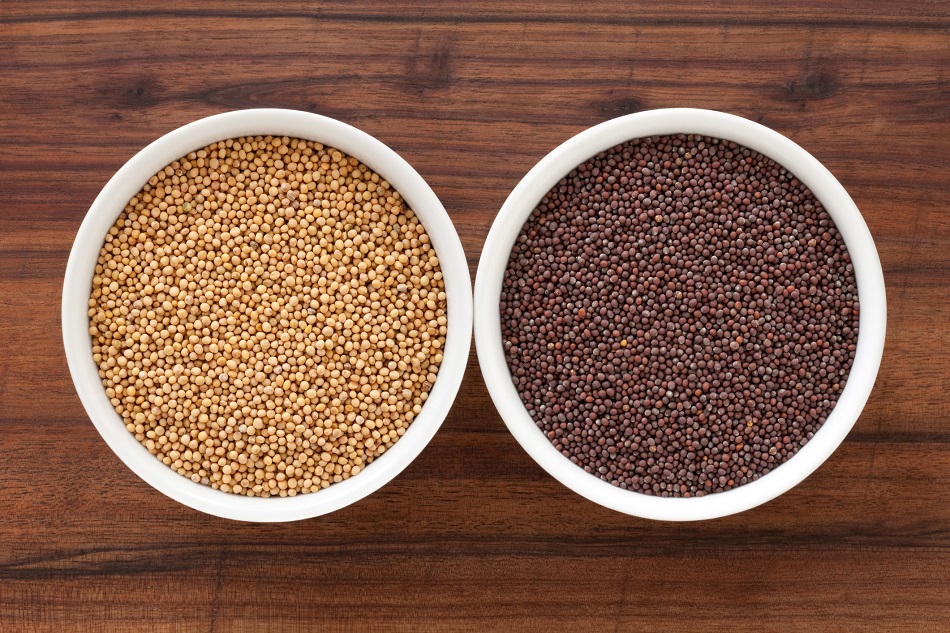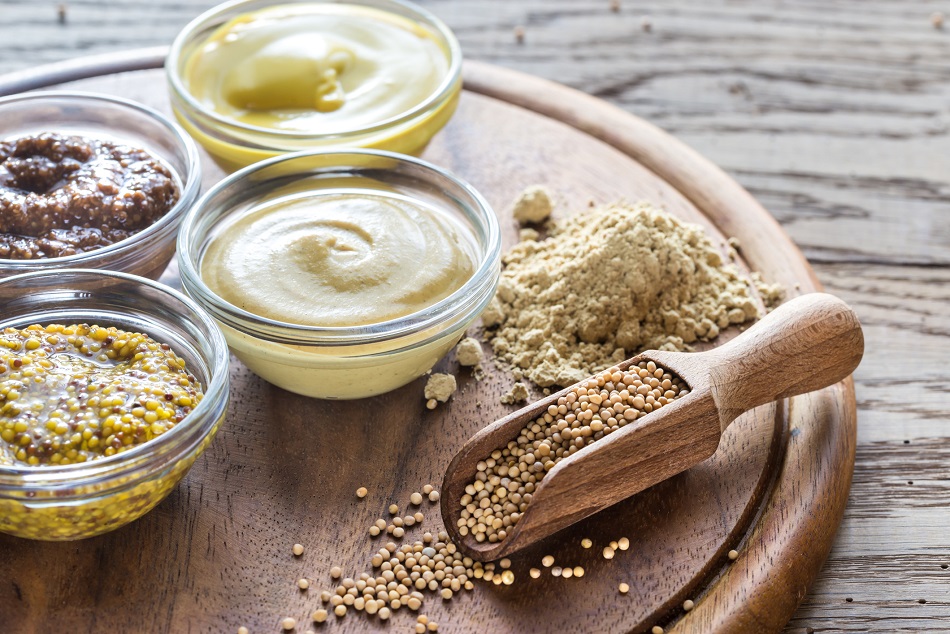What is mustard?
Contents:
- Mustard and mostarda
- Mustard ingredients
- The recipe for your homemade mustard
- Mustard types
- Mustard properties and nutritional values
- Fun facts: mustard seeds to remove bad smells
We all know mustard, this tasty spicy sauce which enrich meat dishes, such as tartare or roasted meats, or sausages and wurstel. What is mustard? The word “mustard” indicates a plant in the family of Brassicacea, providing the seeds for that creamy preparation we all appreciate. Let’s get to know it better: fun facts, misunderstandings, properties and alternative uses.
Mustard and mostarda
Mustard is often confused with another preparation used to accompany many dishes: mostarda. They are actually two different sauces. Where does this misunderstanding come from? The most reasonable explanation for this fact is a linguistic misunderstanding. The French word for mustard is moutarde, which is very similar to the Italian word. The same can be said for the English word mustard.
Anyway, these two preparations have something in common: in order to prepare mostarda you will need mustard seeds – if you prefer a preparation with a stronger flavour – or just mustard flavour – if you prefer a more delicate taste. Do you want to prepare homemade mostarda and discover its peculiarities? Here you will find everything you need about mostarda.
Mustard ingredients

Let’s get back to our mustard, our sauce or condiment for lots of dishes. Which ingredients do we need to prepare homemade mustard? There are plenty of recipes, but one of the most traditional ones has following ingredients:
- 50 g of yellow mustard seeds
- 50 g of black or brown mustard seeds
- 30 g of brown sugar
- 80 ml of apple cider vinegar
- 80 ml of water
- Extra virgin olive oil and salt to taste
- Spices (optional).
This is the recipe to prepare a sauce with a balanced taste, the quantity of yellow or brown/black mustard seeds will determine the taste: the brown/black seeds give a spicy taste, the yellow ones add sweetness.
The recipe for your homemade mustard
Once you have the ingredients for your homemade mustard, you just need to follow a few steps to get your tasty sauce.
- First of all, let the seeds soak overnight in vinegar.
- The day after you can add the other ingredients – except for oil – and blend them. If you want a tastier mustard, you will have to blend spices with the other ingredients. Lots of people love to enrich mustard with ginger, nutmeg or sweet paprika. Blend until the preparation reaches a creamy consistency.
- Add extra virgin olive oil.
- Once the preparation is ready you can pour it into glass pots and keep it in the refrigerator.
Mustard types

There are lots of mustard types: the recipe here above is the most widespread and balanced, but we can find many other versions around the world.
The French moutarde, has many different versions and it has a different name depending on the area where it is produced. Moutarde de Dijon (Dijon mustard) certainly is one of the most famous: prepared with brown seeds, it is quite spicy.
There is also another version called in France Moutarde à l’ancienne, because of its very ancient preparation process. The main difference with the Dijon’s one is the consistency: this version has whole seeds, giving to the preparation a rough taste and appearance.
Among the most world-renowned mustard varieties there is the Alsace mustard, made with white mustard seeds and with a sour, not very spicy, flavour.
In England, the mustard is prepared following a recipe that gives a very intense flavour to the preparation. White or brown seeds are mixed with must or horseradish, providing the cream with very peculiar flavours.
Mustard properties and nutritional values
The main ingredient for mustard sauce are seeds, they possess a number of benefits for your health. Seeds can be used to prepare infusions that can be really helpful to relieve congestion caused by cold, or to prepare a solution of grinded seeds to be applied locally in order to treat painful muscles, rheumatism and neuralgia. Furthermore, mustard seeds help with digestion: preparing a solution of grinded seeds and water will help your bowel movements.
As concerned the nutrition facts of mustard seeds, you may know that they are rich in vitamins and minerals, especially in calcium and phosphorus.
100 grams of natural mustard seeds have 470 calories, which is actually a too high value considering the tiny quantities of seed that are normally used. Mustard sauce has a moderate caloric intake: it’s about 65-70 calories in 100 grams.
Fun facts: mustard seeds to remove bad smells
Beside their use in making tasty sauces and good infusions, mustard seeds are also used to remove bad smells. Dried seeds or seeds preserved in vinegar can be used to prepare a mixture that, as needed, will help your dishwasher, or your hands smell good.

